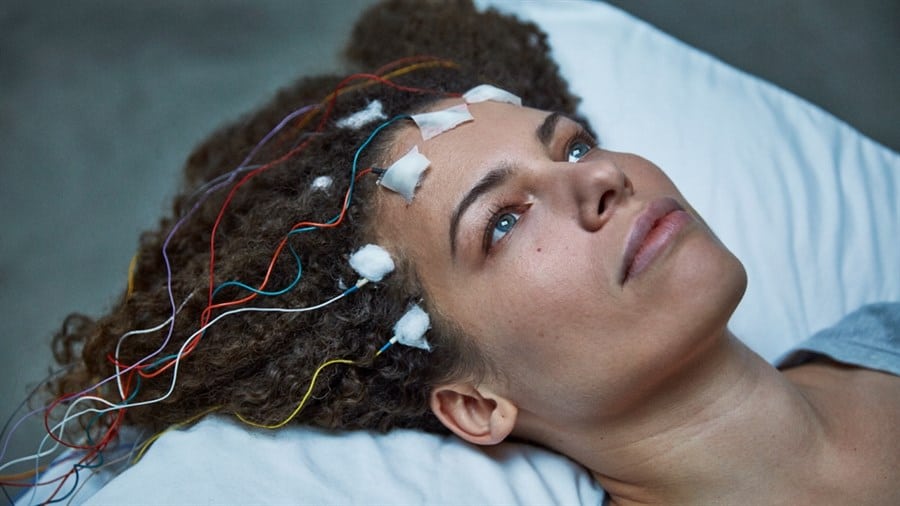Unrest tells the story of Jennifer Brea, a journalist and academic studying for a PhD at Harvard. Months before her wedding, she became progressively ill, losing the ability to even sit in a wheelchair.
When told by her doctor it was all in her head, her response was to start filming from her bed – eventually uncovering the fact that she was suffering from Myalgic Encephalomyelitis (M.E. – commonly known as Chronic Fatigue Syndrome). M.E. is a systemic neuroimmune condition characterized by post-exertional malaise (a severe worsening of symptoms after even minimal exertion). It causes dysregulation of both the immune system and the nervous system. The effects of M.E. are devastating enough to leave 25% of patients housebound or bedbound.
We spoke with Brea over the phone last week.
SDTC: What is the biggest misconception about Chronic Fatigue Syndrome?
JB: The name has really misled people and obscured the nature of the disease for the last 30+ years. People hear the name and don’t have an acute image of what it is. It sounds like it’s not serious, like it’s something we all get from time to time. I think that prevents people from seeing how severe it can be.
It’s a complex disease that affects almost everything in your body; your heart, your gastrointestinal system, your nervous system. I think in some ways that has prevented the disease from being taken seriously and getting the care and attention that we as patients need.
Is that misconception coming from doctors as well?
Definitely. For decades, the media has misreported the disease, and that has affected how the public understands it. When you do get sick, often times your family will say they don’t understand what the disease is and how to support you. With doctors, there are a couple of different issues. One is that 25% of patients are bedridden, so they’re not able to go see a doctor. There’s a whole population of patients that doctors never see.
Also, there are no specialists. Usually with a major disease like MS or lupus, you’re under the care of neurologist or a rheumatologist. If you’re lucky enough to get diagnosed, it’s like “good luck,” because there’s no one to refer you to.
There’s a lot of misinformation out there, like that Cognitive Behavioral Therapy can help – that’s based on research that has largely been discredited. Or doctors will tell you to go out and exercise, which can be extremely dangerous. Because you have a limited amount of energy, if you go beyond your limit, it can spur on a cascade of inflammation. That’s very different from being tired.
Why isn’t it discussed more?
Health is something we all struggle with at some point in our lives. Something like a fifth of the population have some sort of disability. But its something that’s still stigmatized.
If you’re still walking and able to participate in life, there’s a strong incentive to try to hide anything that may be wrong. Once I shared my story and that vulnerability, all of these people came out and said, “I experienced that too.”
You realize how common it is. I think it’s something people aren’t comfortable talking about or bringing to work with them. If we could be more open, the world could be more humane and become a place where we’re more accepting and willing to adapt to another’s circumstances.
What was the most surprising part of this illness for you?
That it existed! Before this happened to me, I never could have imagined that there was this whole world of people who had been completely neglected by medicine, living at the margins.
What is the best way to support a loved one with this disease?
It’s not something that goes away. It’s not like get well soon and maybe you’ll be better next year. It’s more of a commitment to understand it will be up and down, there are better and worse days.
As a friend you can listen and check in every once in a while. One of the worst parts of having friends when you’re chronically ill is that feeling of guilt around, “I don’t know if I’m going to be able to show up.” So be open to meet them where they’re at and make an effort to learn more about the disease. That’s the best way to be supportive.
What do you want people to take away?
I want them to see this community and learn about it. To understand this is a major and serious disease that has been neglected. I want them to find hope – hope that if and when something like this happens to you or someone you love, it’s possible to find a way through.
I’ve been amazed by the people I’ve come to know – the stories they shared. It amazes me how resilient humans can be. We can find a way through. I would hope that this film inspires people to walk with us as a community. We need healthy allies if we are going to change this.
Unrest screens at Hot Docs on April 29, May 1 & 5. Get tickets here. Interview has been condensed and edited.



 Follow Us On Instagram
Follow Us On Instagram
